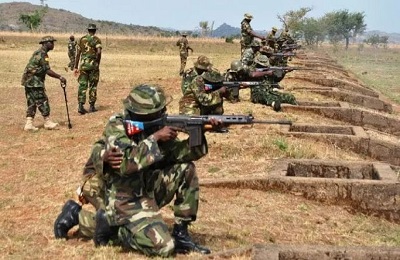MAKURDI, Nigeria – Benue Governor rejects self-defense calls from residents following deadly attacks that killed over 100 people in Guma and other local government areas. Governor Hyacinth Alia warned that armed civilian responses could worsen the state’s security crisis.
Speaking on AIT News Tuesday, Alia cautioned against emotional reactions to the violence. The Benue Governor rejects self-defense stance comes after suspected armed herders launched coordinated attacks across multiple communities over two days.
Governor Warns Against Armed Response
Alia acknowledged residents’ desire to arm themselves for protection. “I should carry, and I think that would make some very good common sense,” he said, reflecting on calls for self-defense.
However, the governor expressed concern about emotional reactions leading to poor decisions. “But where you have people who just decide to work up because of sentiments and emotions that are attached to what is happening with us and within us, I think we’re rendering ourselves a bit more vulnerable,” Alia explained.
The Benue Governor rejects self-defense position emphasizes avoiding vigilante justice that could escalate violence. Alia believes armed civilian responses would create additional security risks rather than solutions.
Community Policing as Preferred Solution
Governor Alia promoted community policing as the better security approach. He argued that local knowledge is essential for effective security operations in rural areas.
“I would encourage us all to keep calling for community policing because it’s the only way,” Alia stated. “It’s only people from within the state and the local government who would understand what is going on with them.”
Benue Security Needs Local Knowledge
The governor emphasized that external security forces lack intimate knowledge of local communities. Community members can better identify threats and respond to security challenges in their areas.
External forces often struggle with response times in remote villages with limited communication infrastructure. Community policing would create networks of trained local residents who understand migration patterns, recognize strangers, and can quickly alert authorities.
Local security networks could provide early warning systems during farming seasons when communities are most vulnerable to attacks.
Deadly Attacks Generate National Outrage
The recent violence has generated widespread condemnation across Nigeria. Suspected armed herders conducted coordinated attacks over two days, killing scores of people and displacing families.
Local leaders warn that the actual death toll could exceed initial reports. Many victims remain missing, and some communities are still inaccessible due to ongoing security concerns.
Calls for Government Action
Civil society organizations have demanded urgent government intervention following the attacks. Former Vice President Atiku Abubakar and other prominent figures have called for justice and stronger security measures.
The violence has renewed debates about federal government responses to recurring attacks in Benue State. Many residents express frustration with perceived slow federal intervention.
Residents Demand State of Emergency
Growing frustration among Benue residents has led to calls for a state of emergency declaration. Many believe extraordinary measures are needed to address the persistent security challenges.
The Benue Governor rejects self-defense approach while residents demand immediate protection creates tension between official policy and community expectations.
Federal Response Questioned
Critics argue that federal authorities have not adequately addressed recurring violence in Benue State. The latest attacks have intensified calls for stronger federal security presence in affected areas.
Residents question whether current security arrangements can protect rural communities from coordinated attacks. Many believe federal forces need better intelligence and faster response capabilities.
Implementation Challenges Ahead
Converting community policing from concept to reality requires significant resources, training, and coordination between government levels. Success depends on rapid deployment of programs that show tangible security improvements.
The state government must coordinate with federal agencies to establish proper frameworks for civilian security participation. Training programs must ensure community police understand legal boundaries and procedures.
Building Community Trust
The Benue Governor rejects self-defense strategy requires demonstrating that institutional solutions can work faster than individual responses. This puts pressure on authorities to show concrete progress in implementing community policing programs.
Residents facing immediate threats need to see that community policing can provide protection that traditional security arrangements have failed to deliver.
Security Strategy Moving Forward
Governor Alia’s rejection of self-defense calls emphasizes institutional solutions over individual responses. The community policing approach requires sustained commitment from all government levels.
He rejected the self-defense strategy aims to prevent escalation while building long-term security capacity. Success will depend on rapid implementation of community policing programs and continued federal support.
Residents await concrete steps to implement community policing and address immediate security threats. The governor’s position requires demonstrating that alternative approaches can effectively protect vulnerable communities from ongoing attacks.
By Abiodun Labi








